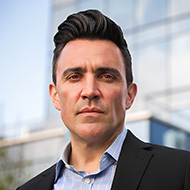Only takes 5 mins to read!
If you are opening a bar or restaurant in New York City or already own a business and would like to apply for a liquor license to increase revenue, understanding the application process and knowing where to start could save you time and money.
The Partners at Pierce & Kwok LLP represent hundreds of alcohol licenses in NYC but, importantly, own their own bar and restaurants and innately understand the paradigm and processes involved here.
Bars, restaurants, clubs, and music venues that serve or sell alcohol in New York must be licensed by the New York State Liquor Authority (NYSLA). Depending on the license type, the application process can be relatively simple or highly complicated. NYC also has additional and mandatory application compliance requirements.
For example, you may apply for any of the following:
- Seasonal License
- Temporary Liquor Permit
- Beer and Wine (Only) License
- Full (On-Premises) Liquor License
Generally, you should not begin the liquor license application process until you have acquired rights to the location where you want to start your business. With that said, occasionally, when closing seems likely or imminent, it is wise to begin NYC’s Community Board application process before full premise-rights acquisition to initiate the process.
After you have closed on the property or signed a lease:
- Send notice to the Community Board. Within NYC, the Community Board is the first level of review to determine whether or not an applicant should be permitted a liquor license. The notice form provided by the NYSLA will give the board the general parameters of your business plan.
- Appear before the Community Board: In specific locations, depending on local board rules and the level of “license saturation” in the area, you will be required to make a personal appearance. If that happens, you must also post a public notice at the physical premises of your business, notifying the surrounding community of your intentions. The notice must be visible and provide the scheduled Community Board meeting’s date, time, and location. In this way, neighbors can attend the meeting and voice their concerns.
Most Community Board opinions and decisions are advisory only.
After listening to the licensee’s business proposal and the concerns, if any, from the surrounding neighbors, the Community Board will submit their report and collective opinion as regards the NYSLA application. The board’s report will inform the NYSLA’s decision as to whether granting the license is for the convenience and advantage of the community.
Having an attorney work with you to obtain your liquor license is not just for the benefit of organization and document filing. We will help you create a narrative that works for the Community Board and the NYSLA. We will properly relay your plans, accomplish the often creative but necessary homework, and advise you on handling some of the community’s more adversarial members.
With or without Community Board approval, your application could take five to more than ten months to be approved. Plan accordingly. Applicants must be fingerprinted, provide proof of citizenship, copies of a driver’s license and passport with a current passport photo, and in-depth employment and residential histories. The NYSLA is very thorough. The process can become a tortuous maze of epic proportions if you do not have a good lawyer who knows how to move things along.
We can help you. We’re good at it, and we enjoy it. Reach out anytime.
Aaron Pierce
(212) 882-1752
299 Broadway, Suite 1405
New York, NY 10007
aaron.pierce@piercekwok.com
piercekwok.com

